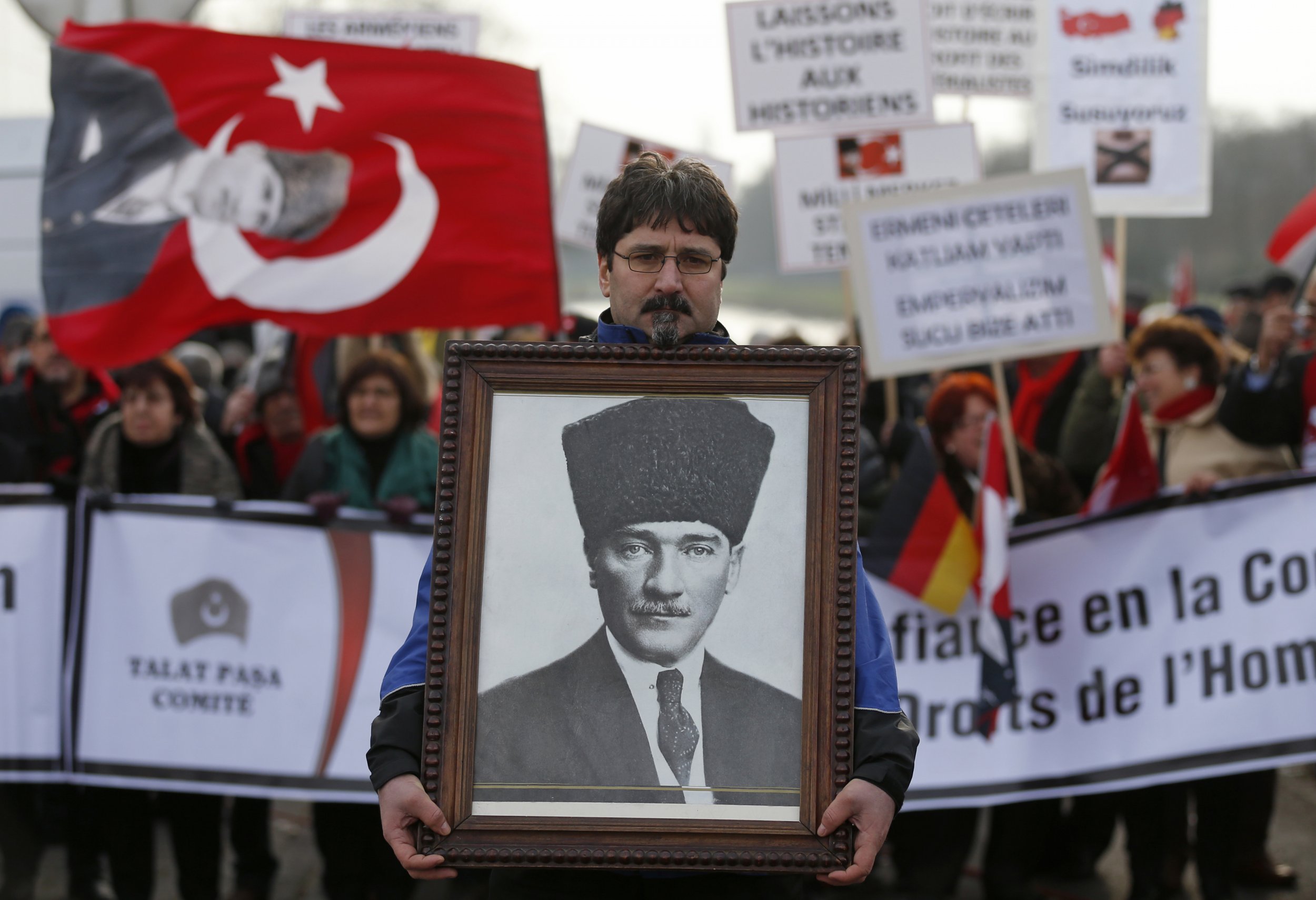
BERLIN (Reuters) - The German government backed away on Monday from a steadfast refusal to use the term "genocide" to describe the massacre of up to 1.5 million Armenians by Ottoman Turkish forces 100 years ago after rebellious members of parliament forced its hand.
In a major reversal in Turkey's top trading partner in the European Union and home to millions of Turks, Germany joins other nations and institutions including France, the European parliament and Pope Francis in using the term condemned by Turkish President Tayyip Erdogan.
Chancellor Angela Merkel's spokesman Steffen Seibert said the government would support a resolution in parliament on Friday declaring it an example of genocide.
Germany had long resisted using the term "genocide" even though France and other nations have. But Merkel's coalition government came under pressure from parliamentary deputies in their own ranks planning to use the word in a resolution.
"The government backs the draft resolution ... in which the fate of the Armenians during World War One serves as an example of the history of mass murders, ethnic cleansings, expulsions and, yes, the genocides during the 20th century," Seibert said.
Turkey denies that the killings, at a time when Ottoman troops were fighting Russian forces, constituted genocide. It says there was no organized campaign to wipe out Armenians and no evidence of any such orders from the Ottoman authorities.
"We believe that there is no such black stain in our history," Turkish Deputy Prime Minister Bulent Arinc said when asked about the German resolution, saying similar votes in other parliaments had not changed Turkey's position.
But in an apparent softening of tone, Prime Minister Ahmet Davutoglu said Ottoman Armenians would be commemorated at a religious ceremony in the Armenian Patriarchate in Istanbul on April 24, the 100th anniversary, in what he described as a "historic and humane" duty for Turkey.
A source in his office said the ceremony would be attended by a government minister, an unprecedented move.
"IMPORTANT ROLE"
German Foreign Minister Frank-Walter Steinmeier had rejected using the word genocide in an ARD TV interview on Sunday, denying any suggestion that it was to avoid upsetting Turkey.
"Responsibility can't be reduced to a single term," he said.
Members of parliament from both Merkel's conservative Christian Democrats and their Social Democrat (SPD) coalition partners forced the change.
Analysts said that the reluctance until now from Germany, a country that works hard to come to terms with the Holocaust it was responsible for, was due to fears of upsetting Turkey and the 3.5 million Germans of Turkish origin or Turkish nationals living in Germany.
The German government also did not want to use the word due to concerns that the Herero massacres committed in 1904 and 1905 by German troops in what is now Namibia could also be called genocide, leading to reparation demands.
"It's a striking contradiction by the German government that Germany is denying the genocide of Armenians," said Ayata Bilgin, a political scientist at Berlin's Free University.
"Research has shown that external pressure on countries can have a considerable influence and Germany could play a very important role in this discussion on Turkey."
Uncommon Knowledge
Newsweek is committed to challenging conventional wisdom and finding connections in the search for common ground.
Newsweek is committed to challenging conventional wisdom and finding connections in the search for common ground.
About the writer
To read how Newsweek uses AI as a newsroom tool, Click here.








